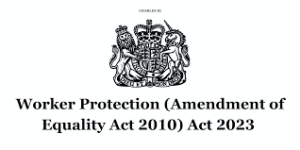

All content © HRadviser 2022
The Workers (Predictable Terms and Conditions) Act 2023 has received Royal Assent and is expected to come into force in September 2024. It introduces a new statutory right for workers to request a more predictable working pattern.
Key points to note include:
ACAS will be producing a draft Code of Practice for consultation in the Autumn which will provide guidance on how to handle requests.
Latest blog posts:

All content © HRadviser 2022